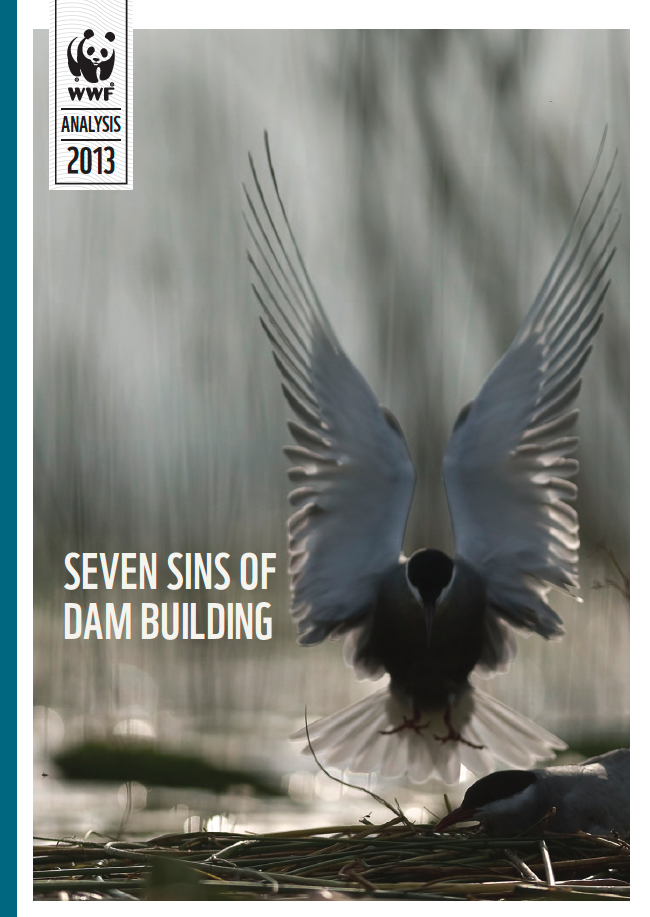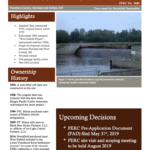The World Wildlife Fund (WWF) released this report, Seven Sins of Dam Building, on World Water Day in 2013 to highlight the detrimental impacts that building dams has on our precious freshwater resources. The sole case study highlighted from the United States in the report is the damming of the Coosa River in Alabama.
According to the WWF web release, “The ‘seven sins’ outlined in the report include issues with dam location, neglecting biodiversity, environmental flows, social and economic factors, and risk analysis.”
The Coosa case study is featured in the report as a dam project guilty of the sin of “neglecting biodiversity.” According to the report, the Coosa River “was once one of the most biologically diverse rivers in the world, but today it is the most developed river in Alabama with only some free flowing stretches remaining.” The report also states that the damming of the Coosa River has been described by the USFWS as “one of the largest extinction rates in North America during the 20th century, with the extinction or extirpation of nearly 40 freshwater species.”
However, the report also notes that all is not lost once a river is dammed. There are opportunities for ecosystem restoration, such as during the Federal Energy Regulatory Commission (FERC) relicensing process, which happens every 30 to 50 years. The Coosa system has been undergoing relicensing for more than a decade and time is running short to make important improvements toward restoration.
According to the report, “FERC has refused to require Alabama Power to conduct critical studies that could lead to the recovery of imperiled fish and wildlife. Without the data these studies could provide, FERC’s finding that the project does not have a significant impact on the environment is unfounded. Unfortunately, the state and federal agencies involved in the relicensing are not addressing the issue of species recovery.”
From WWF:
The ‘Seven Sins’ outlined in the report include issues with dam location, neglecting biodiversity, environmental flows, social and economic factors, and risk analysis. WWF also notes that dam decisions often blindly follow “a bias to build” without considering better, cheaper, and less damaging alternatives.
In particular, scientific evidence and risk assessments too frequently lose out to one-sided political or economic agendas, according to the report. Subsequently, dams are still planned and built in ecologically high value areas and biodiversity loss is still too often not accounted for. Serious impacts, caused by a change in the natural water flow dynamics or the disappearance of wetlands, are still not given consideration.
G7 companies and engineers continue to not only push projects forward in emerging markets that are unacceptable by global standards, but also in the heart of the European Union and North America, reproaches WWF.
In this respect, the report features the case of the planned Morača dams cascade in Montenegro, which WWF has so far managed to halt. The project poses a threat to Lake Skadar, the largest lake on the Balkan peninsula. It is a designated Ramsar site critical for migratory birds and European waterfowl, which makes it one of the most important bird and fish habitats in the Mediterranean region. The planned hydropower cascade would critically change the seasonal variability of the lake’s water level. Building the dams on the Morača River would drastically affect 90 per cent of 280 bird species and a fish population of bleak (Alburnus alburnus), which together with carps (Cyprinus carpio), account for 70 per cent of the total fish catch from the lake.
“In order to guarantee acceptable levels of social and environmental sustainability, dam installations and operations should be stringently checked against sustainability criteria as formulated under the World Commission on Dams or the Hydropower Sustainability Assessment Protocol. Insufficiently performing projects should be improved or halted,” added Angela Klauschen.
For further information:
Chantal MENARD – Communications Manager – WWF Mediterranean
cmenard@wwfmedpo.org – Tel +39 346 235 7481


